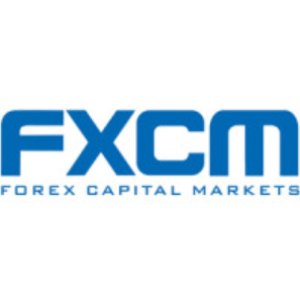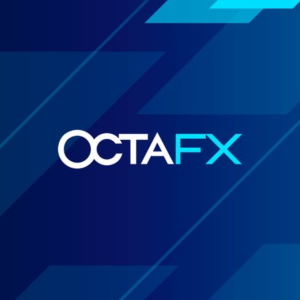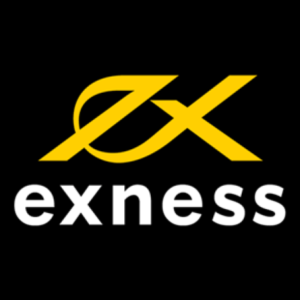best international online brokers for citizens in australia
Table of Contents
Toggle
Recommended
Add to compare
PROS:
- Low trading fees: IC Markets offers competitive spreads on various trading instruments, including forex, commodities, indices, and cryptocurrencies. This makes it a cost-effective option for traders who want to minimize their trading costs.
- Wide range of trading instruments: IC Markets provides access to a wide range of trading instruments, including over 60 currency pairs, commodities, indices, shares, and cryptocurrencies, which provides traders with a diverse set of trading opportunities.
- Fast and reliable execution: IC Markets claims to have some of the fastest execution speeds in the industry, with orders executed in less than 1 millisecond. This means that traders can enter and exit trades quickly, without having to worry about slippage or order delays.
- Flexible trading platforms: IC Markets offers multiple trading platforms, including MetaTrader 4, MetaTrader 5, and cTrader. Each platform has its unique features, enabling traders to choose the one that best suits their trading needs.
- Regulated broker: IC Markets is regulated by the Australian Securities and Investments Commission (ASIC), which ensures that the broker adheres to strict financial and regulatory requirements, providing traders with a high level of security.
CONS:
- No US clients: IC Markets does not accept clients from the United States due to regulatory restrictions. This may be a significant disadvantage for US-based traders who are looking for a reliable broker.
- Limited educational resources: IC Markets’ educational resources are limited, with only a few articles and videos available on their website. This may not be sufficient for traders who require comprehensive educational materials to learn about trading.
- Limited customer support: IC Markets’ customer support is limited to email, phone, and live chat, which may not be enough for traders who need more personalized support.
- Inactivity fees: IC Markets charges an inactivity fee of $15 per month if a trader does not make any trades for a period of six months. This fee can add up and become a significant cost for traders who are not active.
- High minimum deposit: IC Markets requires a minimum deposit of $200, which may be a high barrier to entry for traders who are just starting and do not want to risk a large amount of capital.
Add to compare
PROS:
- Low spreads and competitive pricing
- Fully regulated by the FCA, CySEC and ASIC
- Solid selection of trading platforms and tools
- Comprehensive educational resources for beginners to experienced traders
- 24/5 customer service with multilingual support staff
CONS:
- Limited range of instruments for trading (only 28 currency pairs)
- No access to cryptocurrency markets or CFDs
- High minimum deposit requirement ($500)
- Inactivity fees if you don’t meet their account requirements periodically
Add to compare
PROS:
- Low trading fees: FXCM offers competitive spreads on various trading instruments, including forex, commodities, indices, and cryptocurrencies. This makes it a cost-effective option for traders who want to minimize their trading costs.
- Multiple trading platforms: FXCM offers multiple trading platforms, including MetaTrader 4, NinjaTrader, and Trading Station. Each platform has its unique features, enabling traders to choose the one that best suits their trading needs.
- Educational resources: FXCM offers comprehensive educational resources, including webinars, video tutorials, and trading guides. This can be beneficial for traders who are just starting and need to learn more about trading.
- Regulated broker: FXCM is regulated by multiple financial regulators, including the Financial Conduct Authority (FCA) in the UK, the Australian Securities and Investments Commission (ASIC), and the Financial Services Commission (FSC) in the British Virgin Islands. This ensures that the broker adheres to strict financial and regulatory requirements, providing traders with a high level of security.
- Negative balance protection: FXCM offers negative balance protection, which ensures that traders do not lose more money than their account balance. This can be beneficial for traders who trade with high leverage and are exposed to significant market risks.
CONS:
- Limited product offerings: FXCM offers a limited range of trading instruments, which may not be sufficient for traders who want to trade a diverse range of assets.
- High financing rates: FXCM charges high financing rates on overnight positions, which can increase the cost of holding positions for an extended period.
- Limited customer support: FXCM’s customer support is limited to email, phone, and live chat, which may not be enough for traders who need more personalized support.
- Inactivity fees: FXCM charges an inactivity fee of $50 per quarter if a trader does not make any trades for a period of three months. This fee can add up and become a significant cost for traders who are not active.
- Limited payment options: FXCM offers limited payment options, which may not be convenient for traders who prefer to use alternative payment methods
Add to compare
PROS:
- Low trading fees: Pepperstone offers competitive spreads on various trading instruments, including forex, commodities, indices, and cryptocurrencies. This makes it a cost-effective option for traders who want to minimize their trading costs.
- Multiple trading platforms: Pepperstone offers multiple trading platforms, including MetaTrader 4, MetaTrader 5, and cTrader. Each platform has its unique features, enabling traders to choose the one that best suits their trading needs.
- Fast and reliable execution: Pepperstone claims to have some of the fastest execution speeds in the industry, with orders executed in less than 30 milliseconds. This means that traders can enter and exit trades quickly, without having to worry about slippage or order delays.
- Regulated broker: Pepperstone is regulated by multiple financial regulators, including the Australian Securities and Investments Commission (ASIC), the Financial Conduct Authority (FCA) in the UK, and the Dubai Financial Services Authority (DFSA). This ensures that the broker adheres to strict financial and regulatory requirements, providing traders with a high level of security.
- Excellent customer support: Pepperstone offers excellent customer support, with 24/5 live chat and email support. Their customer support team is knowledgeable and responsive, providing traders with timely and effective assistance.
CONS:
- Limited product offerings: Pepperstone offers a limited range of trading instruments, which may not be sufficient for traders who want to trade a diverse range of assets.
- Limited educational resources: Pepperstone’s educational resources are limited, with only a few articles and videos available on their website. This may not be sufficient for traders who require comprehensive educational materials to learn about trading.
- Inactivity fees: Pepperstone charges an inactivity fee of AUD 15 per month if a trader does not make any trades for a period of six months. This fee can add up and become a significant cost for traders who are not active.
- Limited payment options: Pepperstone offers limited payment options, which may not be convenient for traders who prefer to use alternative payment methods.
- High financing rates: Pepperstone charges high financing rates on overnight positions, which can increase the cost of holding positions for an extended period.
Add to compare
PROS:
- Competitive trading fees: OctaFX offers competitive trading fees, including tight spreads and low commissions, making it a cost-effective option for traders who want to minimize their trading costs.
- Multiple trading platforms: OctaFX offers multiple trading platforms, including MetaTrader 4, MetaTrader 5, and cTrader. Each platform has its unique features, enabling traders to choose the one that best suits their trading needs.
- Regulated broker: OctaFX is regulated by multiple financial regulators, including the Financial Conduct Authority (FCA) in the UK and the Cyprus Securities and Exchange Commission (CySEC). This ensures that the broker adheres to strict financial and regulatory requirements, providing traders with a high level of security.
- Good customer support: OctaFX offers good customer support, with 24/5 live chat, email, and phone support. Their customer support team is knowledgeable and responsive, providing traders with timely and effective assistance.
- Educational resources: OctaFX offers comprehensive educational resources, including video tutorials, webinars, and trading guides. This can be beneficial for traders who are just starting and need to learn more about trading.
CONS:
- Limited product offerings: OctaFX offers a limited range of trading instruments, which may not be sufficient for traders who want to trade a diverse range of assets.
- Limited payment options: OctaFX offers limited payment options, which may not be convenient for traders who prefer to use alternative payment methods.
- High financing rates: OctaFX charges high financing rates on overnight positions, which can increase the cost of holding positions for an extended period.
- No negative balance protection: OctaFX does not offer negative balance protection, which means that traders can lose more money than their account balance.
- Limited research tools: OctaFX’s research tools are limited, with only a few research reports and market analysis available on their website. This may not be sufficient for traders who require comprehensive research materials to make informed trading decisions
Add to compare
PROS:
- Competitive spreads – Exness offers some of the most competitive spreads in the industry, meaning lower trading costs for traders.
- Fast execution – Trades are executed quickly and reliably with no slippage or requotes.
- Robust technology – The broker’s trading platform is powered by powerful servers and sophisticated technology that keeps traders connected at all times.
- Wide range of assets – Exness offers a wide range of currency pairs, commodities, indices, stocks, cryptocurrencies and more for traders to trade with.
CONS:
- Limited customer support options – The broker only offers customer support via email and live chat which may not be ideal for all traders.
- High minimum deposit requirement – Exness requires a minimum deposit amount of $500 which may be too high for some traders who are just starting out in Forex trading.
- Few educational resources available – While there are some educational materials available from the broker, they don’t provide much in terms of comprehensive education for those who need more help understanding how to trade Forex successfully.
- No social trading features – Exness does not currently offer any type of copy-trading or social trading features which could be beneficial for those who want to learn from experienced traders or copy their trades automatically without having to manually monitor the markets themselves.






